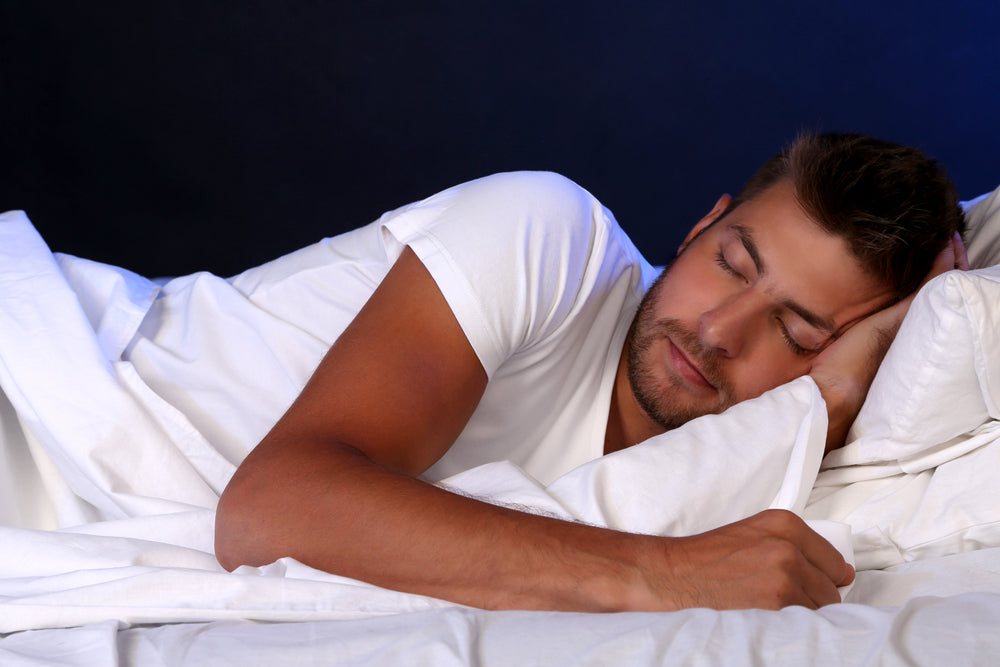
Beauty Sleep – How Your Skin Reflects Your Rest
|
FREE Shipping over $50 SHOP NOW
|
Sure, skincare routines help, but there’s one essential step that often gets overlooked—a good night’s sleep.
Because when you get 7 to 8 hours of solid, uninterrupted rest, your skin gets to do what it does best: recover, refresh, and renew.
And the results?
A natural glow, firmer skin, and even healthier hair.
Read on for a breakdown of exactly what goes on while you sleep, why it matters, and how a natural boost from Elite Sleep Gummies can help you wake up looking your best.
After a full, restful night of sleep, you probably notice the difference: brighter eyes, clearer skin, and just a more vibrant look overall. But the benefits of sleep go deeper than you might think.
Studies show that when you sleep, your body goes into repair mode, releasing key hormones and proteins that restore cells, repair tissue, and improve both skin and hair health.
Regular, quality sleep also helps reduce inflammation, improves immune function, and even supports heart and brain health.
The bottom line? Consistent, quality sleep supports not only your appearance but your entire well-being too.
During sleep, your body enters a powerful repair cycle. Here’s what’s going on behind the scenes:
In short, sleep is the time when your body works hardest to repair, rejuvenate, and recharge, which has clear benefits for your skin, hair, and overall health.
When you sleep well, your skin gets an opportunity to renew. Here’s how quality sleep transforms your complexion:
With quality sleep, you can see a visible glow and smoother texture, helping your skin stay resilient and healthy-looking.
The benefits of sleep aren’t just skin-deep—they extend to your hair, too. Encouraging hair growth, thickness, and strength in several ways:
So how much sleep should you be aiming for each night? For most adults, 7-9 hours of uninterrupted sleep is ideal.
Quality is just as important as quantity; the deeper the sleep, the more regenerative benefits your body receives. However, even just one night of poor sleep can be enough to dull your skin and hair, affecting your overall appearance and mood.
If you’re having trouble getting those 7-9 hours, a consistent bedtime routine, reduced screen time, a cool dark environment and sleep-supporting supplements can all help make a difference.
For those nights when sleep doesn’t come easy, ELITE SLEEP GUMMIES offer a simple, natural solution. Formulated with calming ingredients like melatonin, Vitamin B6, and Passionflower, these gummies help you relax and get to sleep without any groggy side effects the next day. Here’s why they’re worth trying:
If sleep has been hard to come by, these supplement gummies might be just what you need to reset your routine and enjoy true beauty sleep.
How soon can you see the benefits of sleep on your skin?
You’ll notice visible improvements in your skin after just one night of quality sleep. With consistent rest over a few days, you’ll see long-term benefits like fewer fine lines and a more even skin tone.
Can poor sleep really cause breakouts?
Yes, poor sleep can trigger increased cortisol production, which causes inflammation and can lead to breakouts and other skin issues.
What’s the best time to go to sleep for healthy skin?
Going to bed around 10 p.m. to 11 p.m. aligns well with your body’s natural circadian rhythm, supporting optimal skin repair and regeneration.
Do sleep gummies really work?
High-quality sleep gummies like Elite Sleep Gummies contain natural ingredients that support sleep onset and relaxation, so they can be a great addition if you have trouble falling asleep occasionally.
Can sleeping on your side affect your skin?
Unfortunately yes. Sleeping on your side can cause skin compression, leading to more wrinkles on that side over time. Try to alternate sides or sleep on your back to reduce the impact.
A good night’s sleep is one of the simplest ways to improve your skin, hair, and overall well-being.
From brighter, more hydrated skin to stronger hair, quality sleep is your body’s ultimate beauty treatment.
And for those nights when rest doesn’t come easily, ELITE SLEEP GUMMIES are here to help. Packed with natural, sleep-supporting ingredients, they’re designed to get you drifting off naturally so you wake up looking and feeling refreshed.
This article is for informational purposes only and does not contain medical advice. As always, please contact your physician or qualified healthcare provider with any questions regarding a medical condition.
REFERENCES:
Oyetakin-White P, Suggs A, Koo B, Matsui MS, Yarosh D, Cooper KD, Baron ED. Does poor sleep quality affect skin ageing? Clin Exp Dermatol. 2015 Jan;40(1):17-22. doi: 10.1111/ced.12455. Epub 2014 Sep 30. PMID: 25266053.
Chennaoui M, Vanneau T, Trignol A, Arnal P, Gomez-Merino D, Baudot C, Perez J, Pochettino S, Eirale C, Chalabi H. How does sleep help recovery from exercise-induced muscle injuries? J Sci Med Sport. 2021 Oct;24(10):982-987. doi: 10.1016/j.jsams.2021.05.007. Epub 2021 May 18. PMID: 34074604.
Thom E. Stress and the Hair Growth Cycle: Cortisol-Induced Hair Growth Disruption . J Drugs Dermatol. 2016 Aug 1;15(8):1001-4. PMID: 27538002.
Keaney TC. Aging in the Male Face: Intrinsic and Extrinsic Factors . Dermatol Surg. 2016 Jul;42(7):797-803. doi: 10.1097/DSS.0000000000000505. PMID: 27196541.
Anson G, Kane MA, Lambros V. Sleep Wrinkles: Facial Aging and Facial Distortion During Sleep . Aesthet Surg J. 2016 Sep;36(8):931-40. doi: 10.1093/asj/sjw074. Epub 2016 Jun 21. PMID: 27329660.
